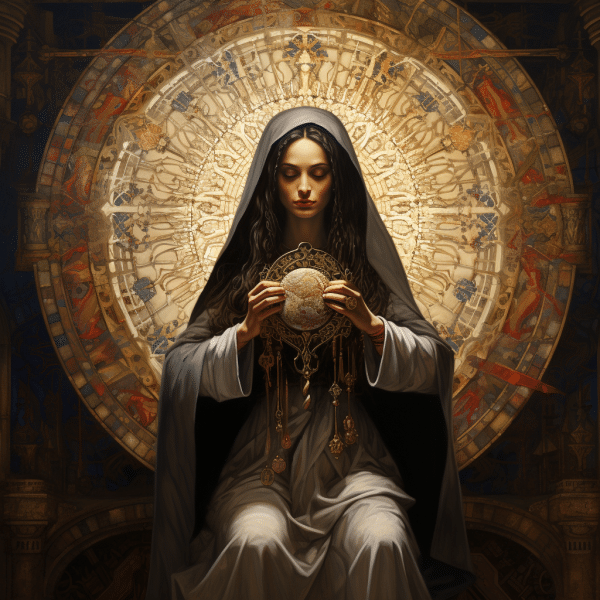
Understanding Faith and Religion: Connections and Differences
Definition of Faith
Faith is complex and personal. It is more than belief, trust, and devotion. It is a force that guides us to understand life’s meaning. Faith exists independently of any religion. It involves wanting to connect with something bigger than ourselves. Faith surpasses evidence and proof, living only in belief. It requires trusting the unknown, even when it does not make sense. Faith is a spiritual journey that helps us know the divine.
Faith and Religions It offers solace and meaning when things are hard. Remember that faith is personal and can have many forms. Respect others’ perspectives while embracing your journey.
Definition of Religion
Religion is a complex and multi-layered idea. It includes spiritual beliefs, rituals, and practices of people or communities. Religion explains the universe’s purpose and guides people how to live a moral life. It often entails belief in a higher or divine being.
Throughout time, religion has had a big impact on civilizations, cultures, and individuals. It has provided them with a sense of belonging and purpose. For example, ancient Egyptians worshiped Ra and different monotheistic faiths such as Judaism, Christianity, and Islam evolved.
Religion brings people together and creates a sense of community. People can come together during religious services or pilgrimages and share their faith. Besides, it is a moral guide for believers, setting limits in their behaviors and ethical decisions.
When we look at the true history of religion, we recognize how it has been part of human civilization since ages ago. Prehistoric cave paintings depict religious rituals and empires like the Egyptians and Mayans built monumental temples. Religion has left an everlasting mark on our past.
Similarities Between Faith and Religions
Faith and religions are similar in many ways. Let’s explore these common traits with a simple table.
Similarities Between Faith and Religions:
| Faith | Religion | |
|---|---|---|
| 1. | Belief in a higher power | Belief in a higher power |
| 2. | Set of values & moral principles | Set of values & moral principles |
| 3. | Rituals & ceremonies | Rituals & ceremonies |
| 4. | Community involvement | Community involvement |
| 5. | Sacred texts & teachings | Sacred texts & teachings |
Plus, faith involves trust, and religion often involves organized worship. Both faith and religions provide comfort, direction, and support.
Going further, individual interpretations matter in both faith and religions. Even though there are different denominations, the core remains the same – belief.
To really understand, we must learn more. Join this journey to feel the effect it has on your life!
Unlock the potential of faith and accept the blessings of religious practice. Don’t let fear stop you from this amazing experience. Start now!
Differences Between Faith and Religions
“Differences Between Faith and Religions” explores the contrasts between two essential parts of human spirituality. Let’s look at these differences in an understandable and helpful way.
To understand the variations between faith and religions better, here is a table:
| Faith | Religion |
|---|---|
| Personal Conviction | Organized Belief System |
| Subjective Experience | Objective Tradition |
| Intimate Connection | Communal Practices |
Faith is a single person’s individual belief, while religion follows an arranged system of belief. This is the main contrast between them. What’s more, faith is often a subjective experience, while religion uses traditional ideas passed down through time. Also, if we focus on the emotional part, faith gives an intimate link to a higher power, however religion focuses on communal activities that bring people together.
To add to our understanding of these distinctions, let’s look at a real example. Nancy is a good example. She was brought up in a religious family where strict beliefs were important. Despite this, Nancy found comfort in faith – her own conviction that gave her peace and energy during difficult times. This unique mix of faith and institutional religion shows how they can exist together and have separate purposes for people.
Importance and Relationship Between Faith and Religions
Faith and religions are connected in a complex way. Faith is an individual’s trust in something bigger. Religion is a system of practices and rituals that aid faith. This relationship is important because it gives purpose and direction to believers.
Religion provides a framework for expressing and experiencing faith. It has a set of beliefs, morals, and a community of people who share similar beliefs. Through rituals, prayer, scriptures, and teachings, it can help believers understand their faith better.
Some people have faith without following a religion, while others find comfort in organized religion. It gives a sense of belonging and social support. There are also communal gatherings that help with spiritual growth.
Faith and religions are not separate, but intertwined. Religion helps nourish faith and faith gives religious practices a personal connection.
Studies have shown that people who practice religion are generally happier. Harvard T.H. Chan School of Public Health conducted a study and found that going to religious services regularly lowers the risk of death from several causes such as cancer and heart diseases.

Conclusion
Faith and religions differ in many ways. Religion includes beliefs, rituals, and practices shared by a group. Faith is more personal. Religion provides structure, while faith comes from personal experiences.
The two concepts are not exclusive. People may find comfort in religious practices and also have faith. To understand the difference, it is important to look at their origins. Religion usually has leaders and scriptures that teach principles. Faith is an inner trust in something beyond oneself.
Religion often needs organizations like churches or temples for communal worship. Faith is not dependent on these structures. It can be expressed through prayer, meditation or moral values.
It is essential to approach discussions about faith and religions with open-mindedness and respect. This can help people of diverse backgrounds understand each other and live in harmony.
Frequently Asked Questions
Q: What is the difference between religion?
A: Faith refers to a strong belief or trust in something or someone, often associated with religious or spiritual beliefs. Religion, on the other hand, refers to a specific system of beliefs and practices that involve worship of a higher power or powers.
Q: Is faith a part of religion?
A: Yes, faith is often considered an integral part of religion. It is the foundation on which religious beliefs and practices are built. While religion encompasses a wider set of rituals and doctrines, faith is the individual’s personal connection and trust in a higher power.
Q: Can someone have faith without being religious?
A: Yes, it is possible for someone to have faith without being religious. Faith can extend beyond organized religion and can be associated with personal beliefs, values, and spirituality. People can have faith in various aspects of life, such as love, humanity, or personal aspirations.
Q: Are all religions based on faith?
A: Yes, all religions are based on faith. Faith provides the foundation for religious beliefs, experiences, rituals, and moral codes. However, different religions have unique interpretations and practices that shape the ways faith is understood and expressed.
Q: Is religions necessary to have faith?
A: No, religions is not necessary to have faith. Faith can exist independent of organized religion. Many individuals believe in a higher power or have deep trust in certain values without adhering to any religious institution or practices.
Q: Can faith and religions coexist?
A: Yes, faith and religions can coexist. In fact, they often go hand in hand. While faith is an individual’s personal belief and trust, religions provides a structured framework and community for practicing and expressing that faith.

